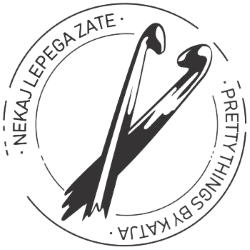The Ultimate Crochet Hook Guide: All You Need to Know
Please note, some of the links in the text below are affiliate links, which means that if you decide to buy any of their products or services, I’ll receive a small commission. It helps me to maintain my blog, support my family and allows me to continue to create free content. I only recommend products that I use and love. Thank you for your support. For more details click the disclosure
Welcome to the fascinating world of crochet, where every stitch and pattern begins with a simple yet indispensable tool: the crochet hook. If you’ve ever found yourself overwhelmed by the myriad of hooks available or simply curious about the nuances of each type, you’re in the right place. Dive into our ultimate crochet hook guide, tailored to unravel the mystery of this essential tool for both beginners and seasoned crocheters.
1. Types of Crochet Hooks:
- Aluminum: Lightweight and smooth, aluminum hooks are perfect for beginners. They’re widely available and work well with most yarn types.
- Bamboo & Wooden: These hooks are eco-friendly and offer a warm, organic feel. Ideal for those who appreciate the tactile experience of crocheting.
- Plastic: These are lightweight and come in larger sizes, making them suitable for bulky yarns and projects like rugs.
- Steel: These are fine hooks, primarily used for delicate lacework with thin threads.
- Ergonomic: Specifically designed to reduce hand strain, these have padded handles, ideal for those who crochet for extended periods or have arthritis. Read more about Handmade Ergonomic Crochet Hooks here.
- Tunisian (or Afghan) Hooks: These are elongated with a stopper at one end, perfect for the unique Tunisian crochet technique.
2. Size Matters:
The size of your hook determines the size of your stitches. A larger hook creates looser stitches, while a smaller one produces tighter, more compact stitches. Always check your pattern’s recommended hook size and make a gauge swatch to ensure accuracy.
3. Anatomy of a Hook:
- Tip/Point: This enters the stitch and pulls the yarn through.
- Head: The part directly after the point. It is divided into an upper and lower part, which helps secure the yarn and ensures smooth crocheting.
- Throat: Helps guide the yarn into the correct position.
- Shaft: Determines the size of the stitch.
- Bowl or Mouth: The curved part of the head which holds the yarn and determines the size of the loop pulled through.
- Thumb Rest or Grip: A flattened area on the handle where the thumb rests for better grip and control.
- Neck: The portion between the thumb rest and the shaft. It’s slightly narrower than the shaft, providing a smooth transition.
- Handle: Where you grip the hook. The design varies, with ergonomic handles being more comfortable for longer crocheting sessions.

4. Caring for Your Crochet Hooks:
Treat your hooks well, and they’ll serve you for years! Wipe them down after use to prevent dirt build-up. For wooden and bamboo hooks, occasionally rub them with wax or oil to prevent splintering.
5. Hook Conversion Chart:

(Note: This is a basic conversion chart. Always refer to your pattern’s specific recommendation.)
6. Advanced Hooks:
- Light-up Hooks: These have a small LED light at the tip, illuminating your stitches. Perfect for working with dark yarns or in low-light conditions.
- Interchangeable Hooks: These allow you to switch out the hook’s head for different sizes while retaining the same handle, offering versatility without needing a vast collection.
Join My Email List!
For crochet enthusiasts like you, my email list is a treasure trove of exclusive patterns, tips, and special offers. By joining, you’ll be the first to know about our latest creations and insights. Plus, as a token of appreciation, use the coupon code BESTOFCROCHET to avail a special discount 20% OFF on my Crochet Patterns. Join Now and Download FREE Winnie The Pooh Pillow Pattern!
Conclusion:
The art of crocheting is a journey, and the crochet hook is your steadfast companion. Whether you’re embarking on your first project or your fiftieth, understanding and selecting the right hook can make all the difference.
Remember, it’s not just about creating something beautiful but also cherishing the process. Every stitch tells a story, and every hook helps you write it.
Thank you for reading my Blog.
Have a beautiful day, and enjoy crocheting.
Katja








Respectfully, how can this be an “ultimate” guide, with no mention of the inline vs tapered hooks?
Thank you for your comment, I will add this section to the post. I appreciate your input. Have a beautiful day, and enjoy crocheting.